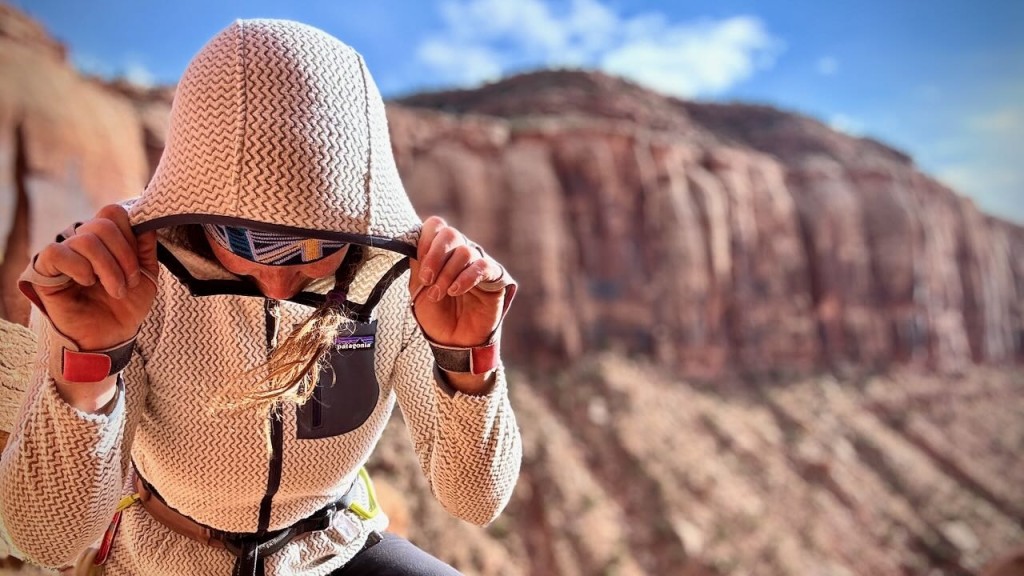To bring you the best fleece jacket review, we first selected the top-selling and highest-rated models out there. We focused on technical models designed for active outdoor use and tested a few non-technical options. We've tested all the way from the cold climates of Canada to the warm deserts of Utah and many places in between. We rated each on five different metrics, assigning scores based on both subjective and objective performance. Each fleece was worn for at least three months, with some being continually tested over the years. Many women test each jacket, with our main tester gathering data and providing you with our results.
Warmth
This test is simple. After evaluating the materials, fabrics, and features, we wear each in cold weather. We wear them on their own and in a layered system, noting which option provides the best overall warmth.
Wind resistance is another big consideration when it comes to warmth. Fabrics that allow air to pass through easily don't have fantastic standalone warmth, whereas those that are less porous are built for keeping the cold out and holding in heat. To test wind resistance, we went outside with just the fleece and sports bra to observe where the wind tore through the fabrics and where it didn't.
Comfort
Comfort and coziness are key to wear all day. We look at the plushness and thickness of fabrics, note great features (like thumb loops), and wear each for many days. We note any odd areas of fit and how the fleece feels after wearing it many days on end. We also sleep and lounge in each one to see which our testing team prefers. We also take the time to climb, hike, and move in each one. We note if the fleece moves with the body or stays rigid, requiring constant adjustments while tackling adventures.
Water resistance is a big part of comfort because if you can't stay dry, you won't be able to stay comfortable. Most fleeces will be worn in a layered system when the weather turns, but we wanted to consider the situation of getting caught in a quick rainstorm. To test water resistance, we spritz each fleece to see how long it takes the fabric to absorb the water. When we can't find a mountain to climb (which is hardly ever), we simply layer up with a thin base layer and stand outside in windy, rainy conditions to see how well the jacket protects us.
Breathability
We snowboard, hike, bike, climb, and run in each of these fleeces. We also examine the fabric composition and porosity to determine which offers the best and worst breathability. The fleeces are tested in both a layered system and on their own. To test breathability, we run at least a mile in each layer, noting areas of ventilation and whether the fabric easily releases moisture and heat.
Layering Ability
To test for this metric, we simply layer clothes over and under with a variety of different layers. We try each fleece with many different types of base layers and jackets. We also look at the relative friction of face fabrics, which are smooth and which are rough.
Weight
The first test is simple: We pull these jackets out of the package and put them on a scale to measure their weight. We then take the time to push, shove, and zip each fleece to see how small we can pack it down. We note their compressed size, and we travel with every jacket – whether in a carry-on or a daypack. We also get them down to their smallest size and try to compare which are more packable.






